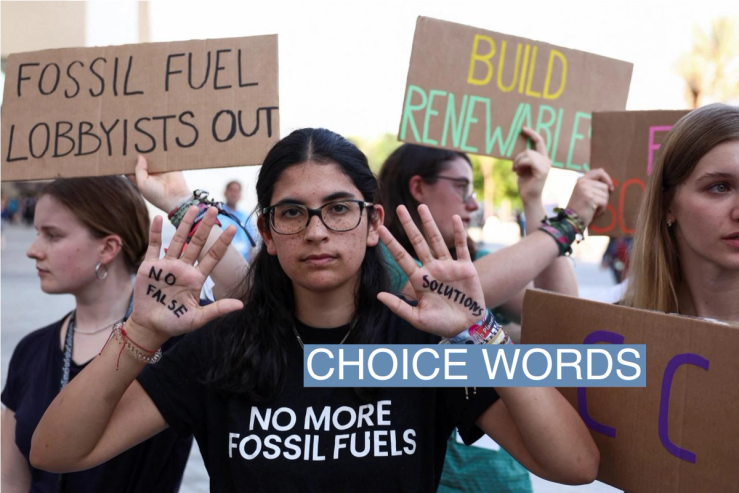The News
Negotiators at the COP28 climate change summit are attempting to pin down language calling for a “phase out” or “phase down” of fossil fuels.
Two versions of a draft of the so-called global stocktake, a document issued after the meeting which looks at how far off track the world is at curbing emissions, have emerged. One group of countries is pushing for “an orderly and just phase out of fossil fuels,” while a second is arguing to “rapidly [reduce] their use,” rather than a full phase out.
The European Union has pledged to support a phase out, the commission’s climate chief said Wednesday. “All 27 European member states want this to be part of the negotiated outcome,” climate commissioner Wopke Hoekstra told a news conference.
SIGNALS
While COP conferences have become synonymous with the global discussion around climate change, debates on the future of fossil fuels only became a fixture of the event at COP26 in Glasgow two years ago, climate editor Justin Rowlatt noted for the BBC. A “pledge now will not mean the world will stop using fossil fuels completely,” he wrote, and it’s unlikely that delegates will actually commit to a date that fossil fuels would be phased out. “But at least the world will have acknowledged what has always been implied by these negotiations - that we need to deal with the main source of climate change.”
The contentious “phase out” debate has been a central peg in this year’s COP, which has been plagued by controversies over the record-high number of oil lobbyists in attendance, and the presidency of Sultan al-Jaber, an Emirati oil executive, over the conference. The United Arab Emirates have already signaled that they are not on board with a deal to end fossil fuel usage, and reporting by the BBC last week noted the petrostate hoped to use the conference to make new oil deals, something the UAE has denied.
Critics have said that COP has become a greenwashed event, and with this year’s record number of oil lobbyists, some campaigners believe industry profits are being prioritized over addressing human-caused climate change, The Guardian reported. COP has “become an avenue for these corporations to greenwash their polluting businesses and foist dangerous distractions from real climate action,” Caroline Muturi, a coordinator with the advocacy group Ibon Africa, told the newspaper.



